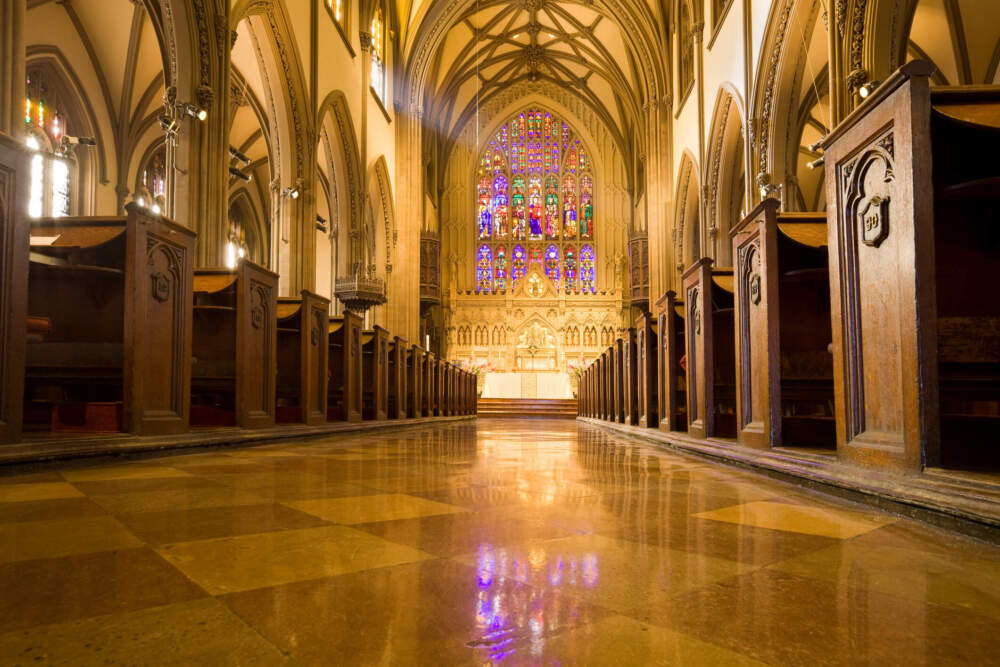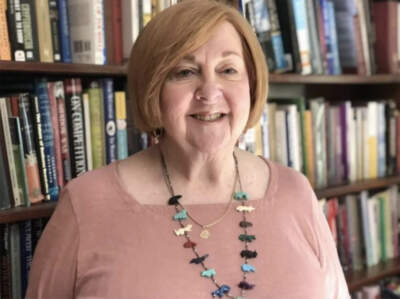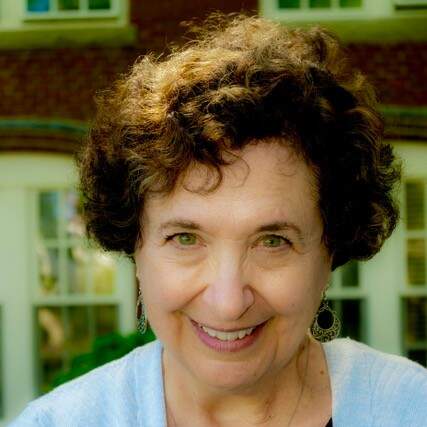Advertisement
Commentary
My mother's family survived the Holocaust. Now I’m finding faith on my own terms

A beloved woman in my community was tragically killed a few weeks ago on a dusky, rainy evening, hit by a truck while crossing a street I have crossed hundreds of times, near the post office where I have mailed hundreds of letters.
There aren’t many people I can say were loved by everyone, but Rev. Helen Sampson Murgida was one. An associate minister at my UU church, she greeted each congregant with a hug every Sunday morning. Fully inclusive. It's who she was. Rev. Helen will also be remembered for her stories, her sense of humor and for being a fierce competitor in church scavenger hunts.
In the past, I wouldn’t have known how to process my grief — but I surely would have struggled with it alone. My own affiliation with faith has been a source of confusion almost all my life. Belonging to a religious institution was never part of my history or identity.

My mother and grandparents were refugees from Nazi Germany, forced to flee because of their Jewish heritage, which they kept a secret from me until I was 20 years old.
When other girls in my second-grade class were preparing for their First Holy Communions, I asked my parents what religion we were, and if I could also have a new white dress for a Holy Communion. My mother responded that we were the “Forman religion,” which I came to understand was our own non-belief system, but included a Christmas tree and an Easter basket. My parents thought their lack of religious participation made us pragmatic non-conformists, that my siblings and I could decide for ourselves what we believed when we grew up. In my young mind, it just meant that we didn’t belong anywhere.
Despite being baptized as a baby in a Protestant church, I knew nothing about Christian beliefs or doctrines. I didn’t know anything about Judaism either, since I was unaware of this part of our family history and had never met a single Jewish person growing up in my homogeneous hometown. I felt lost and ill at ease in any sanctuary. We didn’t even own a Bible. Sunday mornings were not for church, but for sailing. After breakfast, Dad and I set off for the beach, where I'd sit in the cockpit of the Sunfish for a morning on Lake Michigan. Sailing with my dad was as close to God as I got for decades.
But I always felt like something was missing, and was angry for years that my parents and grandparents kept so many secrets. They worked so hard to assimilate, to hide any connection to our Jewish ancestry. My own history had been denied. I was religiously homeless.
Sailing with my dad was as close to God as I got for decades.
When I moved to the North Shore after my divorce, I discovered this welcoming, nearly 300-year-old Unitarian Universalist congregation where I hoped to be accepted, despite my motley background of non-belief. I wanted to find community, to belong. I had no idea how to develop a prayer practice of significance or devotion.
Last year, I also began the process of reclaiming my lost Jewish roots and identity, and enrolled in an introductory Hebrew class. I was honored when the cantor asked me to deliver a Yom HaShoah talk for Holocaust Remembrance Day. With her encouragement, I chose a Hebrew name, Dinah bat Yoseif v’Dovah, which I received with an Aliyah, where I was called up to recite a blessing over the Torah. I sang in our local temple choir for High Holiday services.
I’ve straddled participation in my beloved faith community at the UU with these newer explorations, which have also helped me reflect on my parents' and grandparents' secrets. I now understand that their actions were protective. They believed that fitting into mainstream American society was the best way to safeguard their own lives, and ours. For them, religion was dangerous, divisive and deadly. For me, it has been safe and inclusive, which was the hallmark of Rev. Helen's work.
So when she died, I didn’t mourn in isolation. The night after her death, hundreds of parishioners and friends gathered at our church sanctuary, because we didn't know what to do with our grief. So we shared it communally, collectively. We hugged. We sang. Loneliness may be on the rise everywhere, but being together, cultivating a culture of connection, helped us feel less alone.
